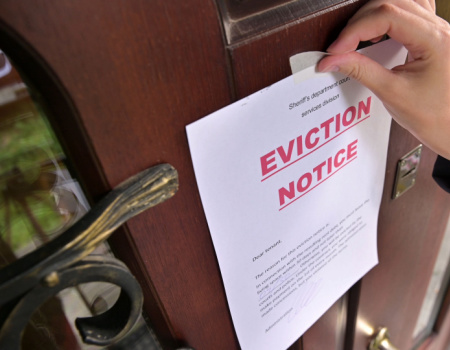As a landlord in Nevada, it is important to understand the eviction process in case you ever need to remove a tenant from your rental property. Even if you only won one rental property, chances are you will at some time face this difficult process. Evictions can and do happen for a variety of reasons, such as failure to pay their rent, or violating the lease agreement, as well as engaging in unlawful activities on the property. In this article, we will guide you through the Nevada eviction process for rental properties, including the legal requirements and steps you need to take.
Terminating the Lease Agreement
Before you can begin the eviction process, you must first terminate the lease agreement with your tenant. This can be done in several ways depending on the reason you want to file for eviction. For example, if the tenant has not paid their contractual rent, you can send them a pay or quit notice demanding that they pay the rent within a certain period of time or vacate the property. If you can prove that the tenant has violated the lease agreement, and you have evidence of this violation, you can send them a notice to fix the violation or vacate the property. The notice must be in writing and include specific details about the violation or non-payment.
If the tenant does not comply with the notice, you can file for a summary eviction with the court. However, it is important to note that Nevada law requires you to give the tenant a certain amount of time to respond to the notice before you can file the lawsuit. The amount of time varies depending on the reason for eviction and can range from seven to thirty days.
Filing for a Summary Eviction in Nevada
To begin the summary eviction, and after you have formally served the eviction notice per NRS 40.253(1)(a) you must file a complaint with the court. The complaint must include specific information about the property, the tenant, and the reason for eviction. You must also include a copy of the notice you had served to the tenant and proof that it was delivered to them. The court will then issue a summons to the tenant, which must be again served by a process server or another authorized individual.
You as the filing party will have to not only file the Complaint for Summary Eviction, but all other supporting documents per NRS 40.253(5), NRS 40.280(3), and JCRLV 34(f). These include a Civil Court Cover Sheet, all of the previously served eviction notices, the lease agreement, and all the declaration of services for the eviction notices.
The tenant will have a certain amount of time to respond to the lawsuit, typically five to seven days. If the tenant does fail to respond within the given timeframe, you can move the court to enter a judgement in default in your favor. If the tenant does respond, the court will schedule a hearing where both you and the tenant can present their arguments and evidence.
The Eviction Hearing
At the eviction hearing, you and the tenant will have the opportunity to present your cases to the judge. You must be able to prove that the tenant violated the lease agreement or failed to pay rent, and the tenant will have the opportunity to defend themselves against the allegations. If the judge rules in your favor, they will issue a court order for the tenant to vacate the property.
If the tenant chooses to not vacate the property within the timeframe specified in the court order, you can ask the court to order law enforcement officials to remove the tenant and their belongings from the property. However, it is important to note that Nevada law prohibits landlords from engaging in self-help evictions, such as changing the locks or shutting off utilities, to remove tenants from the property.
Nevada Eviction Process for Rental Properties with The Rental Lister
The Nevada eviction process for rental properties can be a complex and time-consuming process. It is important to follow all the legal requirements and procedures to avoid any legal issues and ensure a successful eviction. Remember to always provide written notices to the tenant and give them the opportunity to correct the issue before filing a lawsuit. If you are unsure about any aspect of the eviction process, it is recommended to seek legal advice from a qualified attorney. By following the law and staying organized throughout the process, you can ensure a smooth and successful eviction.
Evictions are by far one of the most difficult and unpleasant tasks that you will have to undertake as Las Vegas landlord. This is why a lot of property owners look to hire an experienced property management company to manage their rental properties.
Here at The Rental Lister, we have been managing Las Vegas rental properties for over 20 years. We care about our clients’ properties just like they are our own, and proudly have some of the best reviews in the area. We also offer some of the very best guarantees in the business, which make trying our service risk free.
Call us today!




